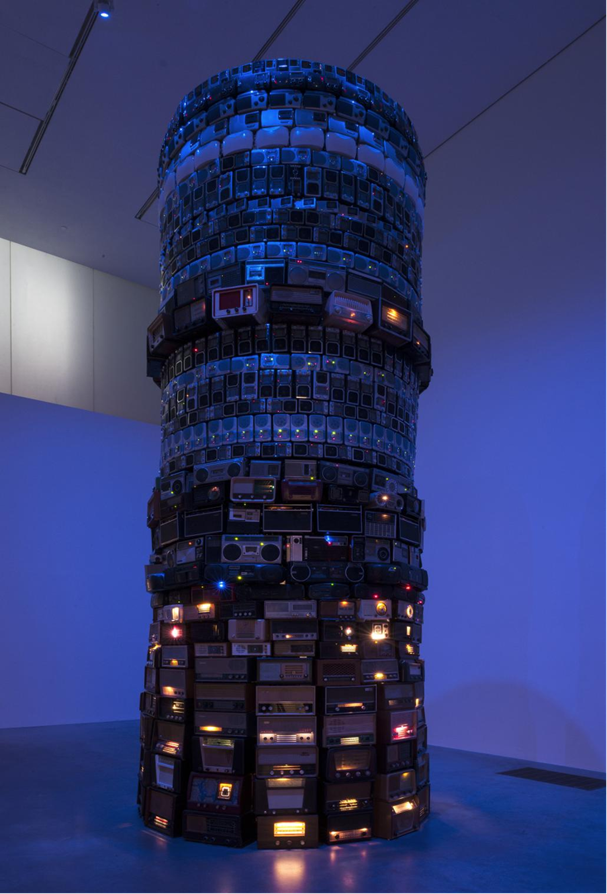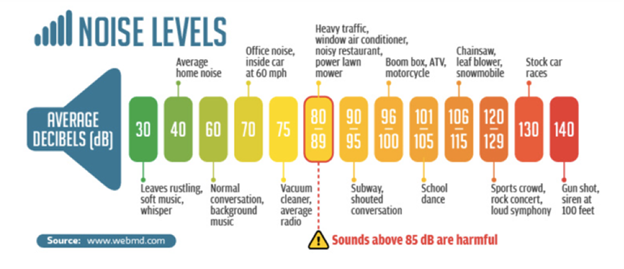It's Oh So Loud. Can I Have A Shush With Syrup On Top, Please?
On my way to the Tate Modern to meet one of my ex-colleagues I figured two things are always true in London; rent and TFL will never get cheaper, but we can still enjoy the most refined museums for free. While it might not help pay your next electricity bill, it is extremely handy if you have no plans for the weekend. You could go to the British Museum, the V&A, or the Saatchi Gallery. And if want to impress your followers on social media, head to the Tate Modern, which has this unique vibe that makes you feel like an art connoisseur, even if you're not, don't you think?
As we walked through Picasso's paintings and Yayoi Kusama's “Infinity Mirrored Room”, we rehashed old times and laughed at the mistakes we used to make, which happened right in front of one of my favourite sculptures in the museum, “Babel” by Cildo Meireles.
The installation resembles a circular tower made from hundreds of second-hand analogue radios, each tuned to a different station and set to a minimal volume, creating an ambient cacophony of sounds that disrupts communication, leaving visitors in a limbo of chaos and clarity.
The artwork is inspired by the biblical story of “The Tower of Babel'' (Genesis 11:1-9). After the Great Flood, humans spoke a single language and decided to build a city with a tower reaching the heavens, symbolising their unity and power. Unfortunately for them, God disrupted their work by confusing their languages, preventing them from understanding each other. This led to the abandonment of the tower and the dispersion of people across the world, often seen as an explanation for the diversity of languages and cultures. Intéressant, n'est-ce pas?
That's a fascinating story, but have you ever wondered why projects fail even when everyone is on the same page and shares the same goal? In the agency world, we tend to point out the quality of the brief or the lack of resources, but could there be something else preventing us achieving great things?
Could it be that the path to success is obscured by an inaudible spell that distracts us from reaching the right destination? Or maybe we're just not programmed to listen actively? We've all worked with colleagues who enjoy the sound of their own voice too much, picking and choosing what to hear. This is a disaster recipe that allows people to do what they want but not what is needed. As a result, would it be fair to say that we are condemned to fail if we're poor listeners?
As the excessive and unnecessary lockdown measures were lifted, we have been oscillating between the relative comfort of our homes and the never-ending buzz of office environments.
Not sure about you, but since then, dealing with constant noise in the office has become excruciatingly painful. [CA1] Whether it's the sublime vocal projections during client calls, loud ridiculous ringtones (some choices deserve public shaming), or the Lombard effect, where people speak louder in noisy places, the desire to yell “can everybody be quiet please” has never been so strong.
Can employees be productive in an environment where the need to be heard is stronger than the need to concentrate? If so, could it be said, that noise has become the new plague to escape from?
The average decibel level in UK open-plan offices ranges from 60 to 65 decibels, but this can vary widely. Sounds at or below 70 dBA are generally considered safe. Research shows that prolonged exposure to noise levels at 85 dBA or higher significantly increases the risk of hearing loss.
According to Oscar Acoustics research, noise disturbance can seriously impact productivity and the quality of work. For instance, while 40% of employees said poor acoustics impacted their concentration, 25% reported being late on projects or turning in poorer quality work due to high noise levels. The sounds that prevent employees from working effectively include colleagues talking (38%), being on calls (34%), eating (21%), and making other bodily noises (19%).
Over the past decade, new disorders like Misophonia (hatred of sound), which is characterised by a significant decrease in tolerance to specific sounds, has emerged. It's essential to understand that Misophonia triggers strong emotional and physiological responses such as anger, anxiety, and distress, significantly impacting daily life. See Google Trends.
Noise can also deteriorate co-worker relationships. Employees report snapping at colleagues (17%), bosses (12%), raising grievances (16%), leaving passive-aggressive notes (11%), and, in extreme cases, physical violence. We might need to adopt options like working from home, moving desks, wearing headphones, or expressing our needs politely and assertively to avoid those extreme responses.
The Global Survey of Working Arrangements (G-SWA) found that having "Individual quiet time" ranked among the top five benefits of working from home. Still, sometimes the office can be a refuge from home distractions. Who doesn't appreciate a loud, improvised interruption by a family member while on a call with the manager?
A study by the University of Arizona and University of Kansas suggests that complete silence isn't conducive to a healthy workplace; the sweet spot for office noise is about 50 decibels, equivalent to birdsong or gentle raindrops. It showed that when environmental sound levels were above 50 decibels, each 10-decibel increase was related to a 1.9% decrease in physiological well-being. However, when office sound was below 50 decibels, each increase was related to a 5.4% increase in well-being.
"People always work in coffee shops – those aren't quiet spaces. But you can concentrate there because the sounds merge into background noise," says Esther Sternberg, director of the University of Arizona Institute on Place, Wellbeing & Performance.
What can companies do?
Simple solutions include installing physical barriers, soundproofing, reviewing desk spacing or creating quiet zones. And similar to those who put deodorant to cover body odour, companies can also mask out noise with ambient sounds like birdsong, rainfall and nature sounds at a low level. While some employers have allegedly let go employees for being “too noisy”, such measures are a real faux pas!
So, where does that leave us, especially if you've been reading my rant for nearly five minutes? If, like me, you are on your way to becoming a grumpy "shush" master, maybe it's time to realise that disturbances are not always external. The key might be to grow our own internal resources to deal with life's unpredictable expressions and make the best of it. Because we are doomed to fail anything if we only hear our frustration, stress and already made solutions. So maybe it's time to keep our mouth quiet for a while and recognise that what we're hearing isn't an unbearable din; it's just life.
SOURCES:
● News Medical on Office Noise








